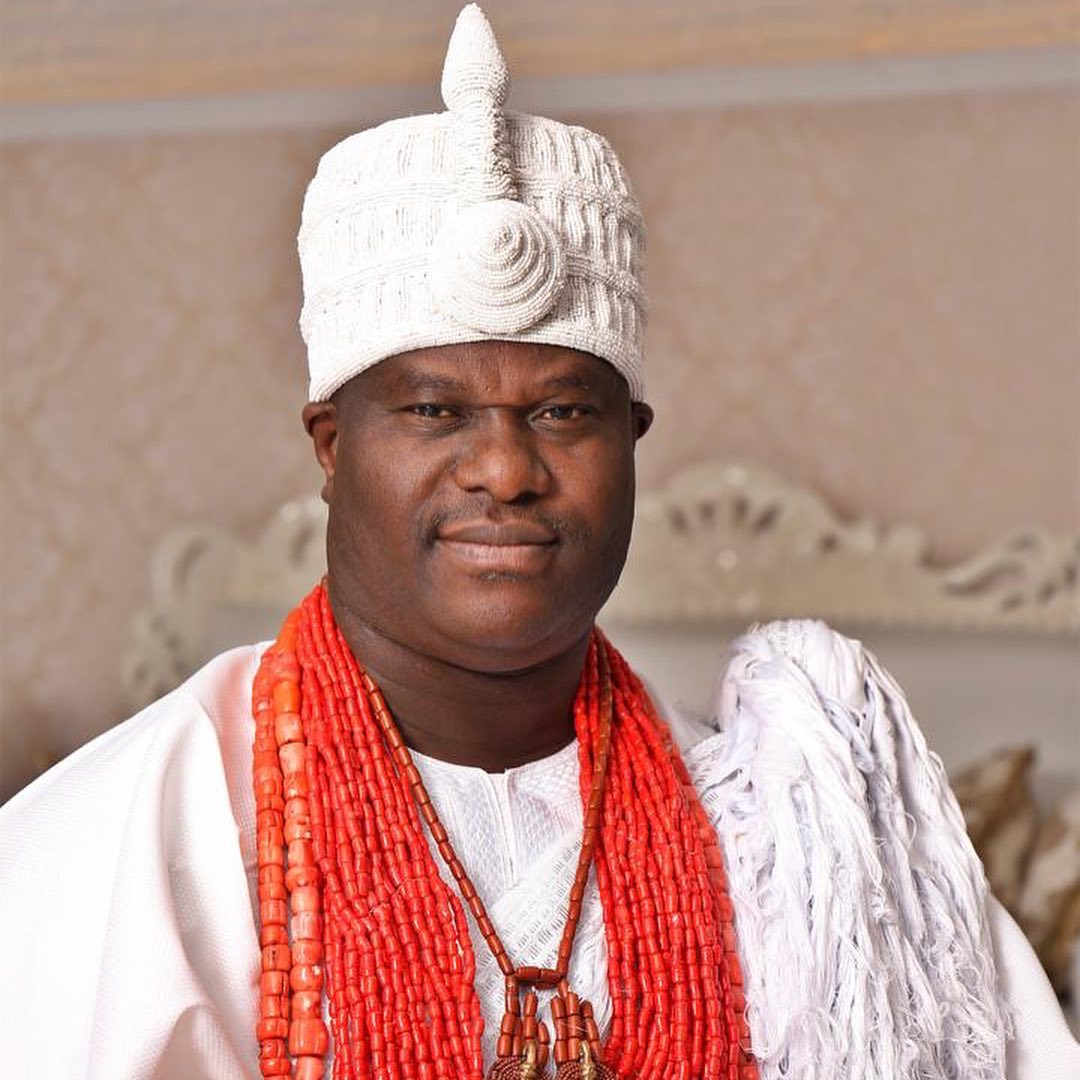
Ooni of Ife, Oba Adeyeye Ogunwusi, has revealed that the Gã people of Ghana originated from Ile Ife, the ancestral home of the Yoruba people.
When King Tsuru II of Gà in Ghana visited monarch, Oba Ogunwusi said: “This trip is a homecoming for King Tsuru II and the Gã people, who have their ancestral roots in Ilẹ -Odùduwà after so many years of being away”.
The Ooni of Ife, Adeyeye Ogunwusi, revealed that the Gã people of Ghana originated from Ile Ife, the ancestral home of the Yoruba people.
The 47-year-old monarch made this statement on Sunday 20th August 2023 when King Tackie Teiko Tsuru II of Gã State visited Ile Ife, Osun State.
The Gã people reside on the southeast coast of Ghana and speak the Kwa language.
Also, the ancient capital city of the Gã people is the present-day capital of Ghana, Accra.
Oba Ogunwusi, the 51st Ooni of the ancestral home of the Yoruba people, described the visit as a homecoming of Oduduwa’s lost descendants.
He said:
“It was an endless honor for me to formally welcome His Majesty, King Tackie Teiko Tsuru II of Gã State in Ghana’s southern region, and his royal entourage, to the eternal throne of his Ancestor, Odùduwà.
” For the offspring of Odùduwà, who have dispersed over the world as a consequence of colonial influence and penetration, this is a watershed point in history.
This trip is a homecoming for King Tsuru II and the Gã people, who have their ancestral roots in Ilẹ -Odùduwà after so many years of being away.
It brings joy to my heart to receive the descendants of Oduduwa from the GA region.
You are welcome back home, King Tackie Teiko Tsuru II.”
Historical background
There are several legends about the history of the Gã people; some legends say the Gã people migrated from Nigeria.
Others have it that they were part of Israel that migrated southward through present-day Uganda, then along the Congo River, and westward through Cameroons, Nigeria, Benin, and Togo.
However, according to the Ooni, the Gã people originated from the ancient time of Ifẹ̀ akànlúbé̩bẹ́, and still have their compound house in Òtu Ifẹ̀, adjacent to Olokun Walode along Ó̩sun.
He said:
“ During the ancient time of Ifẹ̀ akànlúbé̩bẹ́, they emanated from Àgá ko from Ilode quarters in Ife and their compound is still there to date in current Ile- Ife!!!.
“They took the Oduduwa crown and administrative structures with the likes of onípopo, onínàná, onísàbé, and alákétu.
Their compound house still exists in Òtu Ifẹ̀, adjacent to lookup Walode along Ó̩sun, which was their playing field many centuries ago.
” It’s worth noting that divinations were performed before departing.
They conducted ifá in 3 different areas:
(a).Òkè Ìtasẹ̀.
(b).Òkè Ìlérí.
(c).Òkè.
Àgbọnmìrègún where they discovered that the land was gifted to the people of ‘GA’ by Olódùmarè.
While they proceeded on their voyage in a group of seven brothers, some chose to halt and start a new life in Togo, some in the Republic of Benin, and while others settled in, Ẹgbado, etc.”
Ancestral lines.
The king of the Gã people also acknowledged that their ancestral home was Òtu Ifẹ̀, which is the present-day Ile-Ife.
The Gã people are believed to have left with one of the deities of Ile Ife, Olokun deity, which they worship even till the present day.
“They left with the Olokun deity, whom they still remember to this day, having been discernibly blessed by Olódùmarè through Odùduwà, as revealed by the divinations.
In today’s Ilẹ-Ifẹ̀, everyone In Òtu Ifẹ̀ is familiar with the compound name, which was shortened to ‘GA’.
“King Tsuru II acknowledged that his ancestral home was Òtu Ifẹ̀, and I’m sure many of you are unaware that the name ‘GA’ is derived from the Kingdom of Ifẹ̀.
The Gã people are blessed with a vast and very rich landscape, which demonstrates Olokun’s undying affection for them, as some of them are even situated in Ethiopia and Sudan.
Years ago, I was with them during their challenging times.
We looked at their origin, prayed, and pleaded with Olódùmarè to show mercy, liberate them from servitude, and bring the people back to brighter days.
Olodumare deserves all the acknowledgment for listening to our prayers.”
Impact of colonization.
The monarch said that while Ghana was referred to as the Gold Coast and Nigeria was referred to as the Slave Coast, both countries share a common history.
He said:
“Regrettable that the colonizing expedition’s designed artificial boundaries that termed Greater Accra the Gold Coast, whereas Nigeria is referred to as the Slave Coast”.
The monarch also said the historical documents and transcriptions are treasures of ancient and present African kingdoms.
“We are all entrusted with the monumental responsibility of preserving our past.
They are made up of numerous strands that must be protected and stored appropriately.
“Our long-established erudition and expertise must intellectually lead and mold their narratives, meanings, interpretations, and economic values.
No one is better at telling and interpreting our history than we are,” he said.
EXTRACT.
My conclusion, please let us tell our children where we come from but if you don’t know try and find out because what you are ignorant of today your children or great-grandchildren may take an interest in it.
History is the moving of people and the first settler of that particular area. People move from one place to another.
Olorogun Gbolahan Bago-Stowe.